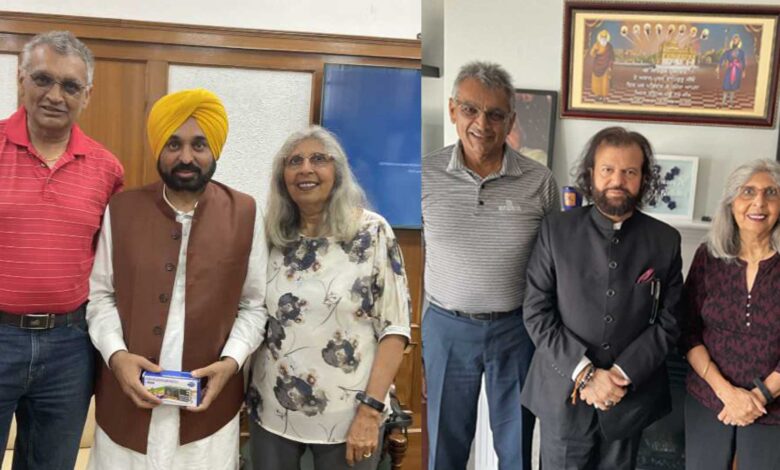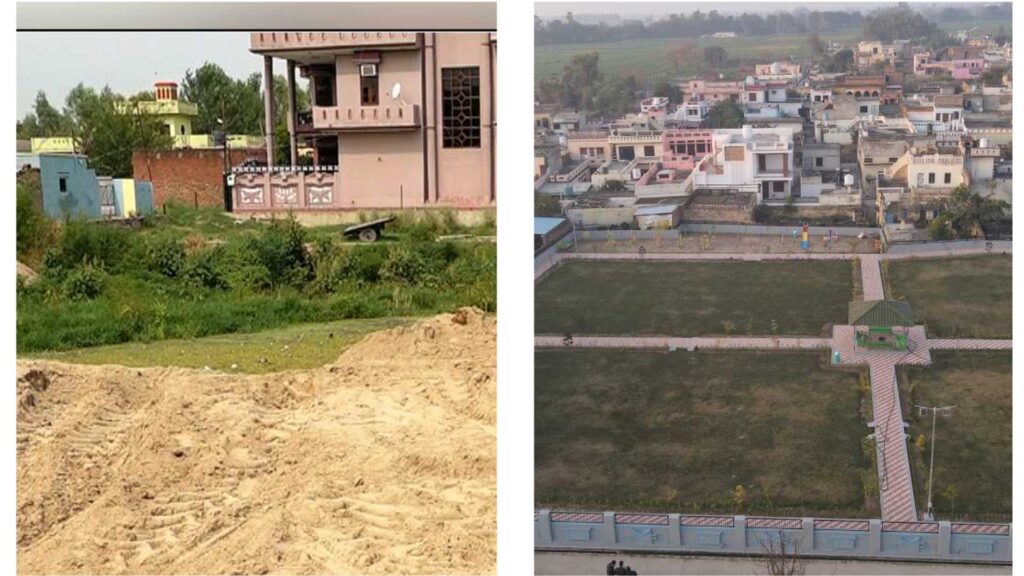
NRIs have always played a significant role in the development and revival of villages in Punjab. Many NRIs who have made their fortunes abroad are now investing their time, money, and resources to improve the conditions of their ancestral villages. These efforts have had a notable impact on the social and economic development of the villages and the well-being of the residents.
One such example is the village of Paldi in Punjab, where Kuldeep Singh Manhas along with others is helping to develop and revive the village. Paldi is a small village with a population of around 1010 people, located in the Hoshiarpur district of Punjab. Born in Duncan, BC, Canada, Kuldeep has spent most of his life in Canada. However, from the age of 3 to 10, he has lived in Paldi. His parents spent 6 months every year in India and around 2006, he also started spending two months each year in India. When our team questioned Kuldeep about the projects undertaken in the village of Paldi, he candidly expressed his sincere desire to help the underprivileged. He mentioned that his father had always wished to establish a sewage system in Paldi, and that motivated him to take up the cause. Now, he has a group of people just like him who share the same passion for improving the living conditions of the villagers.
Kuldeep recalls his father’s conversation with others about the wasteland (Toba) in Paldi which had become a stagnant pool of slimy green water. Their community had attempted to establish a wastewater management system to dispose of it outside the village, but despite three fundraising attempts, they were unsuccessful. In 2018, Kuldeep’s uncle called him to ask for his thoughts as he has been spending time in Paldi annually. He wanted his opinion on a potential project, despite not having visited the village in 25 years. Kuldeep expressed his concern that it would be challenging due to the deep divisions within the village. However, his uncle, who had not visited Paldi for the last 25 years with his impeccable memory of all the residents, made numerous phone calls and eventually convinced them.
Once Kuldeep and his community began to purchase the land, they encountered several issues as some members of the panchayat were complaining. As he was in India at that time, he called a village meeting and informed them that has spent 10 lakh rupees on the land purchase. He also stated that he would not give them the money for the project, but they would control it and the panchayat could guide us. During their initial visit to the DC office, they received valuable advice to get every villager to sign up for the project, which they did. As a result, they managed to accomplish everything with their own funds, without any government assistance. Regarding the sewage system, the government will cover 50% of the costs, and it is currently in the final stages of government approval. In his opinion, if villages have competent panchayats, then more projects like this can be undertaken by NRIs in each village.

Approximately 70 lakhs have been utilised for filling the Toba and constructing the park, and all the funds were contributed by NRIs. The estimated total cost for the sewage system is 2 crore, and it will be split 50-50 between the government and the community. Their next projects are focused on securing our own drinking water and sewage system. Thus far, they have acquired land outside the village to build a treatment plant. Kuldeep and his other NRI friends have come together and have undertaken several initiatives to improve the infrastructure of the village. They want to also focus on creating employment opportunities for the villagers and reviving the traditional crafts of the village.
The efforts from these NRIs have not only improved the living conditions of the villagers but brought about a positive change in the lives of the villagers. This initiative to develop the village of Paldi is a shining example of how the Indian diaspora can contribute to the development of their homeland. It is also a reminder that the development of our country cannot be achieved solely through government initiatives but requires the active participation of all its citizens. Kuldeep and others have shown that even small initiatives can make a big difference in people’s lives.

